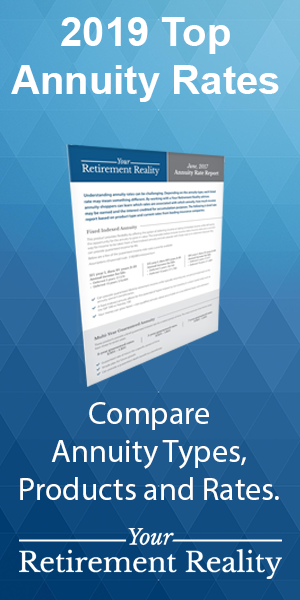You know it’s important to plan for retirement. But when is the right time to start?
The answer might surprise you.
The best time to start thinking about your retirement income strategy is when you get your first job. For most of us, that ship has sailed. But good news! It’s never too late. (And it’s never too early, either.)
The sooner you start planning for retirement, the better off you’ll be. Why? Because the younger you are when you start saving, the more you’ll have later. This might seem like a no-brainer, but to get a better idea of what we’re really talking about, let’s look at the some actual numbers.
To get a rough idea how much your retirement accounts will grow over the years, let’s figure a 4% annual return on your funds. Of course, there are many different types of investments and savings accounts, but 4% is a pretty good ballpark estimate.
If you put away just $5,000 a year starting at age 30, then by age 70, you’d have about $475,000 in your savings account.
If you wait until age 40 to start putting away that same $5,000 a year, then by age 70, you’d have about $281,000 in that account.
If waiting ten years could cost you $194,000, don’t you want to start saving right now?*

Your Retirement Reality Tip
To get your maximum benefits, try to delay beginning your Social Security benefits until age 70.
13982
But wait—there’s more good news. There are other ways to fund your retirement, in addition to traditional savings and investment accounts. Social Security, annuities, 401(k)s, CDs, pensions: the options abound. So don’t panic. Just start planning.
To get a rough idea where you stand now, take the How Far Will Your Money Go? assessment.
Retirement Milestones
We’ve already said that when it comes to retirement income planning, sooner is better—though it’s never too late. To give you some real numbers to think about, here are some of the major milestones on the path to retirement:
- First 401(k) or Roth IRA – You might have opened a 401(k) or a Roth IRA when you got your first job, or sometime after that. Whenever you did, if you did, it marked the first big step toward securing your financial future. Opening these accounts early is one of the best things you can do.
- 50th birthday – At age 50, the so-called “catch-up” provision kicks in. These provisions let you contribute extra money to your 401(k), Roth IRA, or other qualified retirement account. If you didn’t start saving early, this is a great chance to increase your contributions and pump up your savings.
- 59½ birthday – This half-birthday is a big one. You can start taking money out of your qualified accounts, such as your 401(k), without the 10% early withdrawal penalty. Remember, you’ll have to pay taxes on any money you take out. And if you can leave your money in longer, do. You could be around for another 30 or 40 years!
- 62nd birthday – You can begin taking Social Security benefits now, but before you do, consider that your checks could be more substantial if you wait a few more years.
- 65th birthday – You’ll be able to enroll in Medicare now. This could save you on health insurance premiums, allowing you to put more money away if you haven’t retired yet.
- 70 1/2 birthday – Now is the time when you must start taking payouts from your qualified retirement accounts. You don’t have a choice! You’re required to start withdrawing a portion now. If you don’t, there are substantial IRS penalties.
If Social Security, any pensions you might have, and your other retirement accounts aren’t going to be enough to last throughout your retirement, consider setting up a stream of guaranteed income, like an annuity.** Talk to one of our representatives to find out more.
* This hypothetical example is for informational purposes only and is not indicative of past, nor intended to predict future performance of any product. The use of alternate rate, premium and withdrawal assumptions could produce significantly different results.
**Guaranteed income can be generated through the use of annuities. Annuities are insurance products backed by the claims-paying ability of the issuing company; they are not FDIC insured; are not obligations or deposits of, and are not guaranteed or underwritten by any bank, savings and loan or credit union or its affiliates; are unrelated to and not a condition of the provision or term of any banking service or activity. Annuities may be subject to fees and or surrender charges, which vary by product.
This material has been prepared for informational and educational purposes only. It is not intended to provide, and should not be relied upon for, accounting, legal, tax or investment advice. Please consult with a professional specializing in these areas regarding the applicability of this information to your situation. The presenters of this information are not associated with, or endorsed by, the Social Security Administration or any other government agency.
14060

